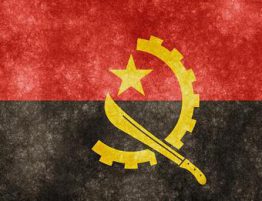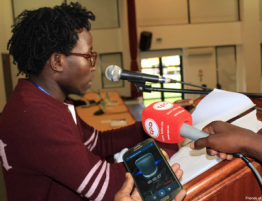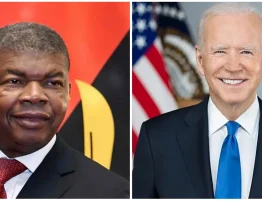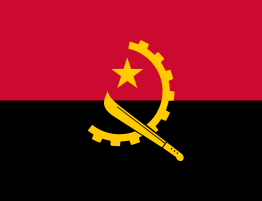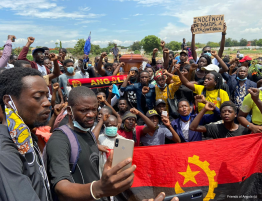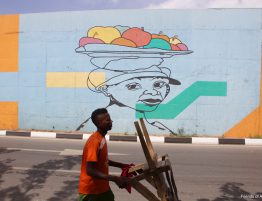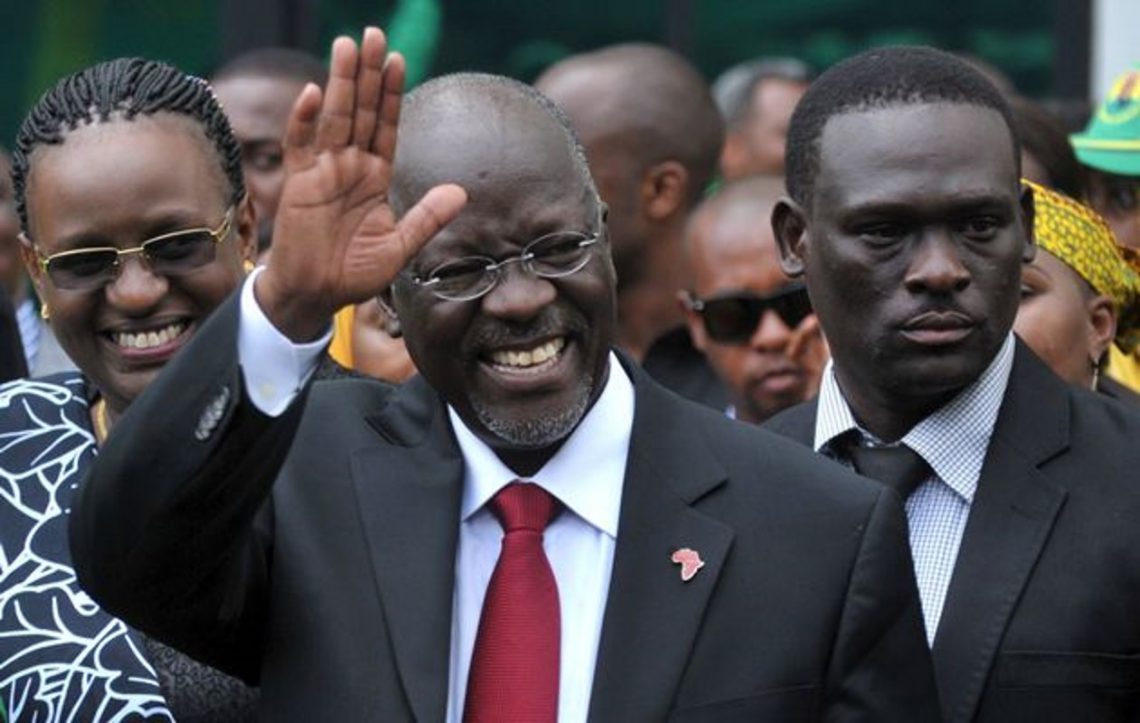
Image:africanevents.com
JOINT OPEN LETTER
His Excellency
President John Pombe Magufuli
United Republic of Tanzania Dar es Salaam
Tanzania May 20, 2020
Your Excellency,
Re: Immediate and urgent measures to protect the rights of prison detainees in Tanzania
We the undersigned non-governmental human rights organizations, welcome your government’s measures to halt the spread of COVID-19, including closing schools, discouraging public gatherings, informing the public, and establishing three Cabinet committees to lead the response.
We particularly welcome recent steps to decongest Tanzania’s prisons, where 3,717 prisoners were pardoned in line with recommendations by the World Health Organization (WHO). However, we believe it does not go far enough to alleviate the risk to Tanzania’s prison population and the community at large. Tanzania’s prison conditions make it practically impossible to maintain social-distancing for all detainees and self-isolation for those possibly, or are, infected. Also at risk are prison staff, medical and food service providers, their families, and the communities they interact with. Like many of Tanzania’s regional counterparts, places of detention are overcrowded, have limited access to healthcare, and face hygiene challenges. The WHO has warned that “people deprived of their liberty, and those living or working in enclosed environments in their close proximity, are likely to be more vulnerable to the COVID-19 disease than the general population.”1 In order to implement strict social distancing, Tanzania’s prison population must be reduced such that the general prison population can maintain at least one meteror greater distance in all directions at all times, in line with current guidelines.2 In addition, facilities must have enough space to self-isolate those who are ill or have come into contact with infected persons.3
On several occasions, your Excellency has noted with concern the overpopulation of Tanzania’s prisons. More than half of the country’s detainees are awaiting trial, many of whom have been detained for years.4 Effective measures to decongest the country’s prisons need to include releasing many members of this group. As other countries’ experiences show, the failure to take measures to decongest prisons can lead to
_______________________________________
1 WORLD HEALTH ORGANIZATION REGIONAL OFFICE FOR EUROPE, Preventing COVID-19 Outbreak in Prisons: A Challenging but Essential Task for Authorities (Mar. 23, 2020),
http://www.euro.who.int/ data/assets/pdf_file/0019/434026/Preparedness-prevention-and-control-of-COVID-19- in-prisons.pdf.
2 WORLD HEALTH ORGANIZATION REGIONAL OFFICE FOR EUROPE, Coronavirus disease (COVID-19) advice for the public (Apr.29, 2020), http://www.who.int/emergencies/diseases/novel-coronavirus-2019/advice-for-public.
3 Id. Adequate measures should be in place to protect persons in isolation from any form of ill treatment and to facilitate human contact as appropriate and possible in the given circumstances (e.g. by audiovisual means of communication).
4 Hilda Mhagama, Tanzania: Fresh Move to Decongest Prisons, DAILY NEWS (DEC. 19, 2019), http://dailynews.co.tz/news/2019-12-195dfb1888f2eb5.aspx. Moreover, as of October 2015, Tanzania’s prisons operated at 116% capacity, and as of December 2019, 51% of detained populations were in pre-trial detention. WORLD PRISON BRIEF, Tanzania Country Page, http://www.prisonstudies.org/country/tanzania (last visited Apr. 30, 2020).
prison riots5 In response to COVID-19, and the threat to prison populations, neighboring countries like Uganda, in addition topardoning certain convicted persons, have undertaken to urgently review cases of pre-trial detainees.6 In Kenya, by fast-tracking hearingsthrough video conferencing, courts were able to release over 5,000 prisoners, including “remandees”.7 Given the rising numbers of confirmed COVID-19 cases in Tanzania, extraordinary measures are required.
We therefore call on you to prevail on the relevant authorities to urgently review cases of those in pre-trial detention,including individuals detained on non-bailable offenses and those whose cases are still at the investigation stage.8 Further,the authorities should refrain from custodial arrests for low- level offenses that do not involve the infliction or threat of infliction of serious bodily injury, sexual assault, or a known likelihood of physical harm. Where the arrest and detention of a person is unavoidable, screening measures must be put in place to prevent the infection of persons indetention as well as members of the police.
While taking immediate measures to decongest the prisons and detention centers as recommended above, we urge your government to ensure that facilities continue to adhere to the United Nations Standard Minimum Rules for the Treatment of Prisoners (Nelson Mandela Rules). Authorities have directed the lockdown of detention facilities to limit interaction with the outside population.9 This means prisoners are no longer allowed public visitors, including family members and their legal representatives. Restricting lawyers from meeting their clients jeopardizes the fundamental right to legal representation. Furthermore, the complete isolation of prisoners from friends and family may have an impact on the mental well-being of detainees.
We recommend that Tanzania implement alternative measures, such as video conferencing, allow increased phone callswith family and legal representatives, and permit email and communication at a distance or behind glass partitions.
Currently, while measures are in place for courts to continue to hear some criminal matters through video conferencing, there has been no publicized directive or collaboration between the offices of the Prosecutor General, the Judiciary, or the legal profession to prioritize reducing the number of detainees, particularly those in pre-trial detention. The failure to furtherdecongest prisons, coupled with the restrictions of legal counsel and family visits as detailed above, could aggravate what is already a tense, difficult and potentially dangerous situation.
_____________________________________
5 In Sierra Leone’s Pademba Prison, at least 7 people were killed (5 inmates and 2 guards), and several others injured following escape attempts by inmates, who claimed new inmates had contracted Covid-19. See REUTERS, Riot Rocks Coronavirus-Hit Prison in Sierra Leone (Apr. 29, 2020), http://www.reuters.com/article/us-health-coronavirus-leone-riot/riot-erupts-at- coronavirus-hit-prison-in-sierra-leone-idUSKBN22B1S0?il=0. In Chad, inmates in a detention facility reportedly attempted to escape in response to visiting restrictions imposed in response to the COVID-19 pandemic.
6 Damali Mukhaye, COVID-19: Prisons Identify 2,000 Inmates for Release, DAILY MONITOR (Apr. 7, 2020), http://www.monitor.co.ug/News/National/Covid-19-Prisons-identify-2000-inmates-release/688334-5516728- 13p3t9g/index.html.
7 Aisha Salaudeen, Kenya has freed nearly 5000 Inmates via Newly Adopted Skype Court Sessions, CNN (Apr. 2, 2020), http://www.cnn.com/2020/04/02/africa/kenya-courts-on-skype/index.html.
8 Although officials should be cautious in releasing pre-trial detainees who pose a real danger to others, such as those accused of violent crimes, they should urgently review all files and release those facing non-violent charges.
9 Jacob Mosenda, Tanzania Prisons Ban Visitations Until Further Notice, The Citizen (Mar. 19, 2020), http://www.thecitizen.co.tz/news/1840340-5496836-agy440/index.html.
We therefore respectfully urge that you consult with relevant stakeholders, including the Honourable Minister of Health,the Commissioner General of Prisons, the Honourable Chief Justice, the Director of Public Prosecutions, the InspectorGeneral of Prisons, the Tanganyika Law Society, and other civil society organizations, to put in place a comprehensive COVID-19 plan of action to decongest Tanzania’s prisons. These bodies should agree on a plan to do this, which should be shared with all involved, including prison staff, inmates, and the general public, to minimize unnecessary fear and anxiety.10
The Tanzanian government has an obligation to ensure the right to health for everyone under its jurisdiction. Article 16 of the African Charter on Human and Peoples’ Rights, to which Tanzania is a state party, provides: “Every individual shall have the right to enjoy the best attainable state of physical and mental health.”11 This right, in accordance with the 1995 African Commission Resolution on Prisons in Africa, is extended to prisoners, detainees, and other persons deprived of their liberty.12
In light of the above, the undersigned organizations respectfully recommend that the government of Tanzania urgently take the following measures:
1. Review of cases that could lead to release of detainees. Courts should continue to hold all critical hearings, includingbail hearings and habeas corpus petition hearings. The prosecution should agree to conditional or unconditional release options, unless individuals are accused of a serious offense and their release would pose a specific and known risk ofharm to others or they are a known flight risk. Pending cases not previously scheduled for hearing can be expedited to facilitate early disposition of the case;
2. During this COVID-19 period, authorities should refrain from arresting people for crimes that do not involve serious offenses, and then only arrest if the person would pose a specific and known risk of harm to others, issuing citationsinstead;
3. Prisoners who do not meet the criteria for conditional or unconditional release should not be isolated from legal counsel or relatives. Any restrictions on the rights of people deprived of their liberty, including on visitations, should be strictly necessary and proportionate to the health emergency. The government should implement alternatives for prisoners to consult privately with legal counsel, during court proceedings and within prison facilities. Prisoners must also beallowed contact with their relatives, taking into account social-distancing measures. This can include providing free and adequate access to telephone, internet, video communication and other appropriate electronic means, as well as measures to safely receive food and other supplies.
4. Ensure that all detention facilities are equipped with sufficient and functioning sanitizing equipment and/or other relevant facilities for physical hygiene and that all detainees are regularly
___________________________________________
10 WORLD HEALTH ORGANIZATION REGIONAL OFFICE FOR EUROPE, Prevention and Control of COVID-19 in Prisons and Other Places of Detention (2020), http://www.euro.who.int/en/health-topics/health-emergencies/coronavirus-covid-19/novel- coronavirus-2019-ncov-technical-guidance/coronavirus-disease-covid-19-outbreak-technical-guidance-europe/prevention-and- control-of-covid-19-in-prisons-and-other-places-of-detention#437664.
11 African (Banjul) Charter on Human and Peoples’ Rights, opened for signature June 27, 1981, OAU Doc. CAB/LEG/67/3 rev. 5, 21 I.L.M. 58 (entered into force Oct. 21, 1986), http://www.achpr.org/legalinstruments/detail?id=49.
12 African Commission on Human and Peoples’ Rights, Resolution on Prisons in Africa, ACHPR/Res.19 (XVII) (Mar. 13–22, 1995), http://www.achpr.org/sessions/resolutions?id=24.
provided (free of charge) with adequate quantities of soap, sanitizing items and access to clean running water.
Thank you for your attention to this critical matter, which bears on the health and well-being of all Tanzanians. We would be happy to talk by phone with officials involved in addressing these issues.
Sincerely,
1. Amnesty International Crisis in Zimbabwe Coalition (Zimbabwe)
2. Anti-Corruption Trust of Southern Africa (ACT-SA) (Zambia)
3. CIVICUS. (South Africa)
4. Counselling Services Unit (CSU) (Zimbabwe)
5. Crime prevention, Rehabilitation and Reintegration of ex-prisoners (CRROA). (Lesotho)
6. EG Justice
7. Friends of Angola (FoA) (Angola)
8. Human Rights Institute of South Africa (HURISA) (South Africa)
9. Human Rights Watch
10. Institute for Public Policy Analysis and Implementation (IPPAI.) (Zimbabwe)
11. Lawyers for Human Rights. (LHR) (South Africa)
12. Legal and Human Rights Centre (Tanzania)
13. Malawi Network of Religious Leaders Living with or Personally Affected by HIV (MANERELA+). (Malawi)
14. Oasis Network for Community Transformation.
15. Robert F Kennedy Human Rights (RFK)
16. Southern Africa Human Rights Defenders Network (SAHRDN)
17. Southern Africa Litigation Centre (SALC) (South Africa)
18. Southern Africa Network Against Corruption (SANAC). (Zambia)
19. The Rock of Hope (South Africa)
cc.
The Honorable Chief Justice
The Honourable Minister of Constitutional and Legal Affairs
The Director of Public Prosecutions
The Commissioner General of Prisons
The Inspector General of Police

